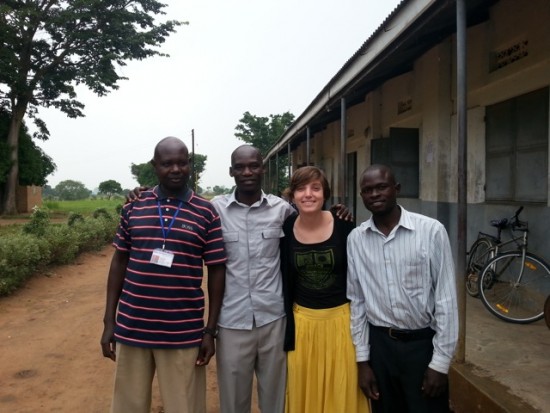How Ugandan Women are Fighting for Feminism


She is married to a man who verbally (and in times prior, physically) abuses her and her eldest daughter – a child born of a different father in a previous life – while saving his favor for the younger two children that they share. She is a Ugandan. She is a woman, and an amazing one at that.
Throughout my time in Uganda – and particularly in the vulnerable moments of friendship shared with this woman – I have often confronted a clash between my values. Between my desire to intervene and the recognition of my limitations. Such issues are, of course, not limited to Uganda but in light of different cultural values and expectations. Sometimes drastic discrepancies can begin to stand out.
A fellow Pink Pangea contributor recently described – quite eloquently – the kind of inner tug-of-war that occurs when you’re a temporary participant in a complex system, aiming to be culturally sensitive but also fiercely dedicated to your convictions. There is a sense of grappling there that I really appreciate.
She describes women in Uganda as “second class citizens,” which, I will say, is accurate to some degree. The rules may change depending on whether you are in an urban or rural setting, on your socioeconomic status – or even on the context. They are more flexible (and sometimes non-existent) for foreigners. But, generally, the rules are always there. My friend’s unfortunate situation is not a special exception.
And a passive subservience and attentiveness to the demands of patriarchy might be the expectation (and may even be promoted in the textbooks) but everyday I witness exceptions. I see my friend negotiating a careful balance to protect her children and future. I see women driving motorcycles in skirts and leading businesses. I see girls fiercely dedicated to obtaining an education, despite the obstacles.
To my fellow Pink Pangea author I say the following: it’s not just about having the financial resources to implement the change you hope to. It’s about taking the force behind your genuine questioning and applying it to solidarity. Finding a balance between cultural sensitivity and social change isn’t a matter of financial resources – the change must come from within. It must be in line with a culture rather than dismissive of it. I struggle with this constantly. I question if it is truly possible.
I question if it is truly possible.
A friend of mine – a big, burly, Ugandan male who, by many standards, contributes to enforcing such a patriarchal system – once described to me how a “body” is constructed. The males are, quite obviously to him, the head. I was ready to hear that the women were the hands or the feet, but instead he said: “Women are the neck. The head – or the man – can’t see any new perspective without them. Without them, you have no head.”
This obviously still sits a bit uncomfortably, but the sentiment is there. Various women’s social and economic empowerment groups and organizations are beginning to recognize the importance of involving the husbands, sons, and brothers in the process – for it is not in blatant disregard to the woman, but in support of her and with a full recognition of the system in which she lives. She will be most empowered if she doesn’t face conflict at home–if all components of the body are educated openly and equally.
As Bell Hooks recognizes in her book, Feminism is For Everybody, “the goal of global feminism is to reach out and join global struggles to end sexism, sexist exploitation, and oppression” – but we must keep in mind that solutions must come from the source. We must continue “struggling to decolonize feminist thinking and practice so that these issues can be addressed in a manner that does not reinscribe [to] Western imperialism.”
Photo for How Ugandan Women are Fighting for Feminism by Unsplash.








